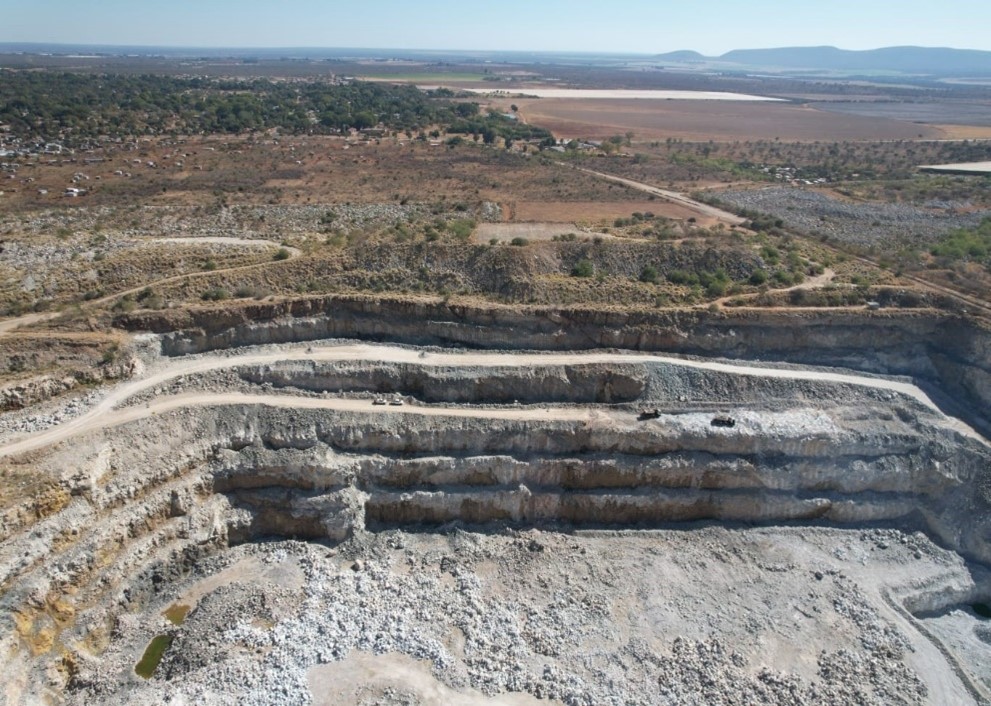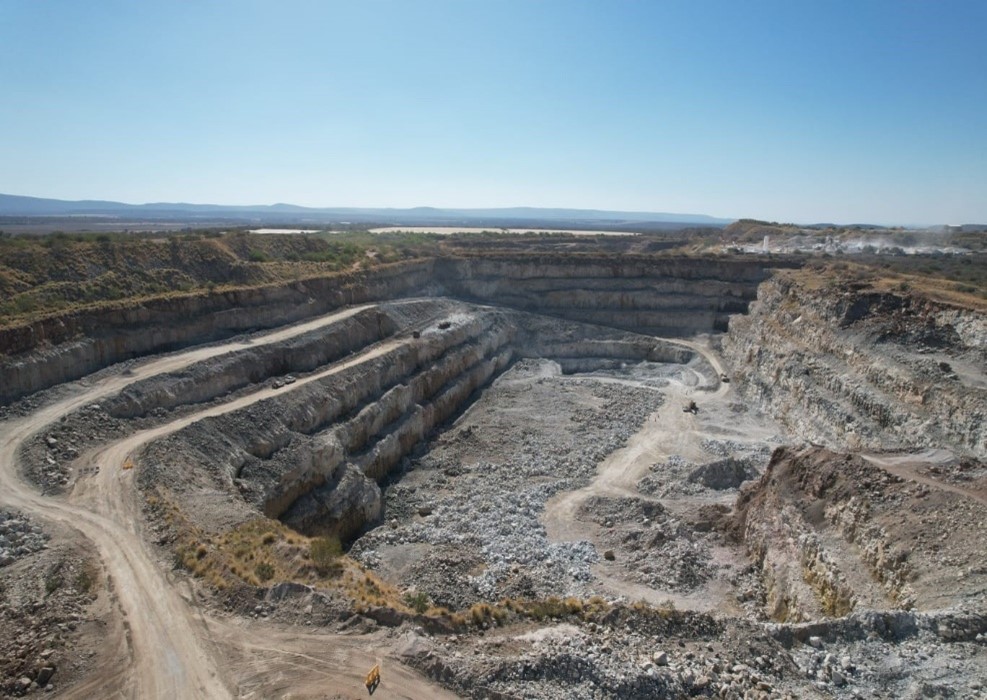To optimize limestone production and extend the mine’s lifespan, Afrimat Mining Services embarked on a significant pit expansion project at Marble Hall. This involved strategically removing overburden (waste rock) to expose valuable limestone reserves through controlled blasts. Limestone is a crucial mineral resource in the mining industry. Its versatility and abundance make it indispensable for a wide range of applications, particularly in construction, agriculture, and industry.
Overcoming the Dolomite Obstacle
The project focused on removing dolomite, a waste rock layer overlying the limestone. To expedite this process without disrupting ongoing operations, a decision was made to bring in a dedicated plant-hire fleet.
Afrimat’s Key Role
Afrimat Mining Services played a crucial role in the project. Their team provided essential services, including:
- Crushing and Screening: Transforming removed dolomite into sellable aggregates.
- Blasting Services: Ensuring efficient and controlled blasts for rock removal to uncover limestone.
Impressive Results
Over four months, the Afrimat team crushed and screened nearly 116,000 tons of dolomite, with a significant portion (80,000 tons) coming from pre-split blasts. These produced high-quality aggregates that were valuable to the operation, even allowing for a temporary shutdown of the Aggregate (Blue) Plant for maintenance.
Building on these achievements, the next phase of the project focuses on expanding the put further by optimizing limestone extraction and transportation.
In May 2024, a new haul road became operational, facilitating the initial blasts on the limestone block. The road’s design ensured efficient transportation and safety. Before blasts, every drill hole was sampled to assess the limestone’s chemical composition, confirming its excellent quality.
The successful pit expansion project at Marble Hall has significantly extended the mine’s lifespan, adding close to a year’s worth of limestone reserves. This achievement demonstrates Afrimat Mining Services’ expertise in optimising operations and maximising value from mining resources through strategic blasts and efficient material handling. As the year progresses, further expansion plans are underway to continue unlocking the region’s limestone potential.
What is limestone?
Limestone is a sedimentary rock composed mainly of calcium carbonate (CaCO₃). It’s one of the most common rocks on Earth and is formed from the accumulation of shells, coral, and other marine fossils over millions of years. Limestone has numerous applications, including:
- Construction: It's used in the production of cement, bricks, and blocks.
- Agriculture: It's used to neutralize acidic soil.
- Industry: It's used in the production of glass, paper, and steel.
- Pigment: It's used in the production of paint and other pigments.
Why is limestone used in construction?
Limestone is a popular construction material due to its abundance, durability, and workability. It can be easily cut, shaped, and moulded into various forms.
How is limestone used in agriculture?
Limestone is used to neutralize acidic soil, which is essential for optimal plant growth. By adding limestone to acidic soil, farmers can improve soil fertility and crop yields.
Ready to unlock the full potential of your mining operations? Afrimat’s comprehensive services can help you achieve maximum value. Visit our Mining Services page or contact us directly.



